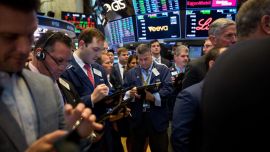Writes Dr Hale from New England:
“I see that it is now the turn of the Old World to be the cold world. How’s your weather down there? I understand there’s not been too much rain, which must surely be an issue for your agriculture. But I suppose my main question this week must be President Mauricio Macri’s state-of-the-nation speech, would I find it any more enlightening as to the year ahead than his Chapadmalal huddle? Also the dollar’s been pretty lively this week, what can you relay me about that?
My reply:
“Let’s start with the state-of-the-nation speech, concentrating on its economic content which interests you most. Not that there was too much of that, especially considering the proliferation of economic portfolios while the socio-economic Cabinet in the broadest sense would account for a majority of ministers. But this whole eruption of the abortion issue indicates an attempt to sideline the economic agenda.
“If that is the case, it would seem that the worst is not over, as Macri asserted early in his address to Congress. Always a rashly premature claim until the correction of relative prices is complete – the steep increases for transport, fuel and utility billing still in the pipeline will keep inflation ticking well ahead of the 15-percent annual target for a while to come at an unfortunate stage in the collective bargaining season. But Macri could allow himself optimism on the grounds that after six consecutive quarters, growth is here to stay – just the day before INDEC statistics bureau had confirmed 2.8 percent growth for the year 2017 (conveniently below the three percent which would trigger payment on growth-linked bonds).
“Yet Thursday’s speech also gave the game away as to the uneven nature of that growth – Macri boasted of record cement and car sales in January, thus underlining how much of that growth comes from construction and the auto industry. Macri also spoke of 260,000 jobs being created last year but did not elaborate that over 40 percent of these were in construction. Again he prided himself on 11 percent more investment last year (widely perceived as his biggest shortfall) without specifying how much was owed to electoral public works spending and how much went into the financial sector with Lebacs etc. But Macri partially anticipated this scepticism when he spoke of ‘invisible growth’ – the foundations had been laid even though the house had yet to be built.
“Otherwise there was little room for doubt – Macri sees his basic economic strategy as going to plan without need for any change of pace or anything else. Inflation and the fiscal deficit will be lower each year, thus leading to less debt and more investment. No new urgency for gradualism is admitted even if the Federal Reserve’s trend to tighter money has made Argentina the most exposed market in the world after Turkey. My own feeling is that Macri can continue his deficit financing via debt both this year (around half the 2018 public-sector borrowing requirement is already met) and next through to his re-election but will have to crack down pretty soon thereafter.
“Very little else directly related to the economy in the 40 minutes of state of the-nation speech – not only drastically shorter than his predecessor Cristina Fernández de Kirchner but also far less statistics-laden. Even the need to improve infrastructure (an obsession with the trained engineer) was this time tacked onto the need to develop tourism rather than more directly economic aims such as boosting the export sector (nothing on the trade deficit). Such references as productivity agreements with labour, connectivity and this year’s G20 summit have their economic aspects but they were not explored. Yet perhaps the main orphan of the state-of-the-nation speech was the lack of anything to reduce the size of the state.
“Since you ask about the weather, it’s great for a beach holiday but further inland there’s drought in much of the pampas heartland. In a few weeks we will know the exact damage to this year’s harvest and to the country’s export earnings. The latter is likely to suffer less than the former since world grain prices have surged by over 15 percent so far this year (in part due to Argentina’s shrinking supply) and also because the lively dollar which you mention might entice some of last year’s soy previously held back in silos due to the stagnant exchange rate of an electoral 2017.
“Quite apart from the direct economic damage, this drought threatens to wrongfoot a recent shift in government spending priorities rooted more in political than economic strategies. The Mauricio Macri presidency began by transferring billions of dollars to farming via the double bonus of eliminating most export duties plus a maxi-devaluation from lifting currency controls, followed some months later by the Historic Reparation for pensioners. The vision then was to develop inland regions while writing off Greater Buenos Aires as Cristina country going nowhere. But in recent months (a trend confirmed by the midterm senatorial victory in Buenos Aires province) the focus has inexorably returned to Greater Buenos Aires with the flow of funds reversed – from the old to the young (with last December’s pension reform scaling down increments) and from the countryside to the megalopolis. Examples of creaming agriculture would be sharply increasing rural property taxation and the surreptitious elimination of Fondagro (created last year to devote the 1.7 billion pesos from the postponed five-percent cut in soy export duties to regional economies although only half a billion pesos were spent). The government has chosen a bad year to up the burdens of drought-stricken farmers. On the contrary, they should be honouring the 2015 campaign pledge to cut soy export duties by five percent annually – there should be nothing wrong with keeping one’s promises.
“Finally, you ask about the dollar. This week it’s been bubbling around now firmly above the 20-peso mark. The dollar in Argentina is a strange beast, defying the usual laws of supply and demand. One might imagine that when the greenback is stuck at lowly levels lagging well behind inflation, there would be hordes of bargain-shoppers but there is usually minimal interest – precisely because of the stagnation. But when the dollar suddenly becomes more expensive, everybody wants it (or at least over a million buyers in the latest surge) – either in the hope of future gains from continued upward momentum or because they see the rise as a symptom of uncertainty and wish to seek refuge. The 11-digit ‘tourist deficit’ also swells demand.”




















Comments